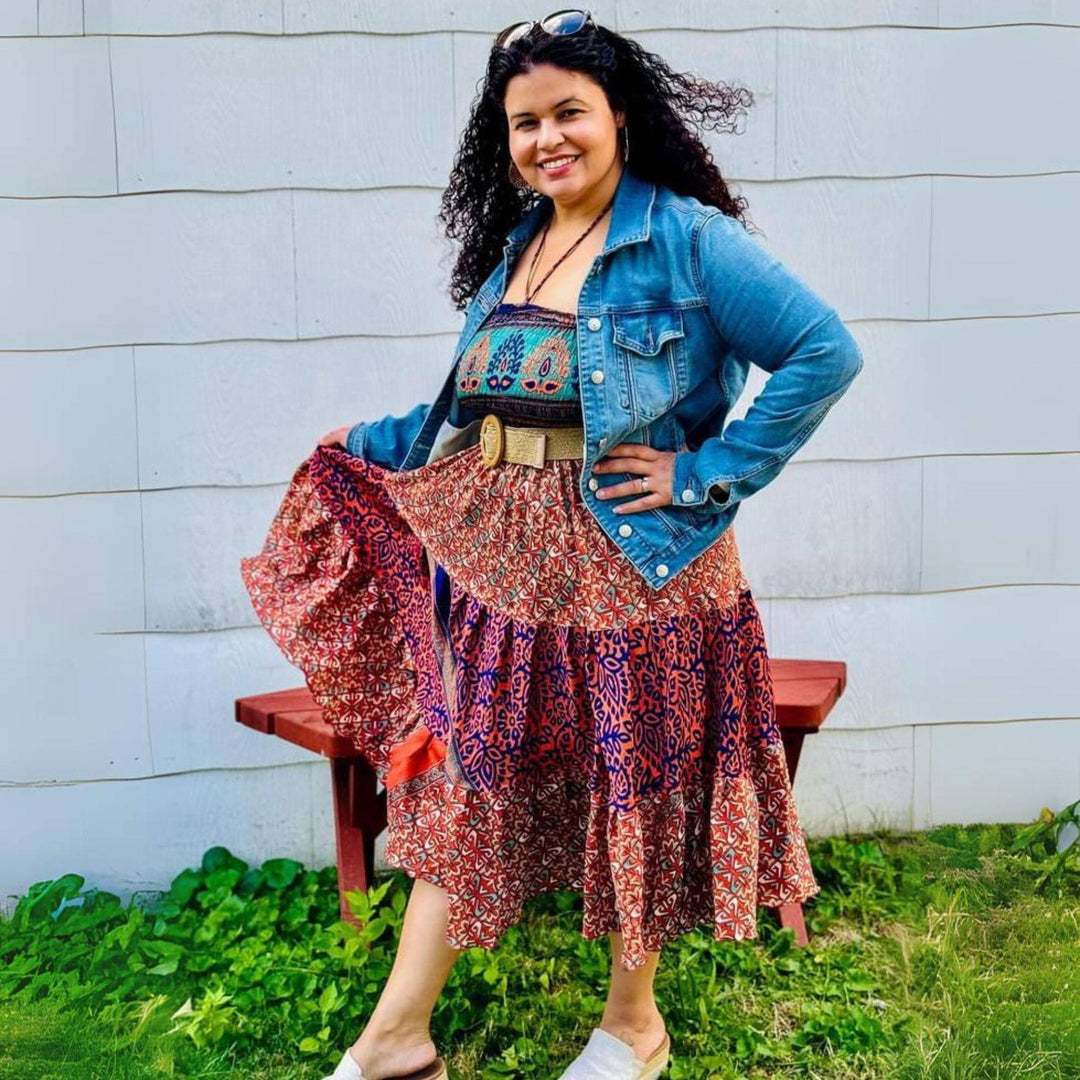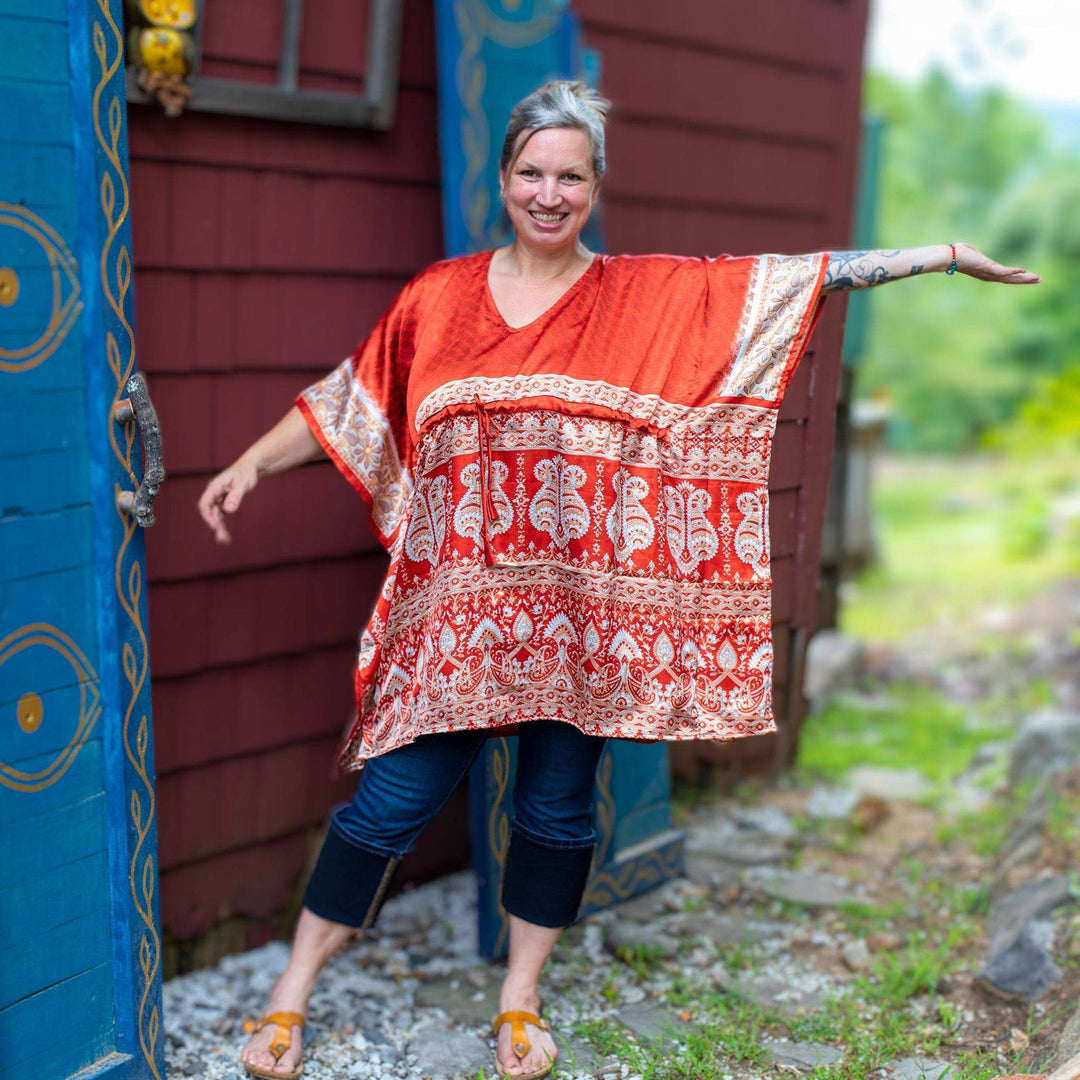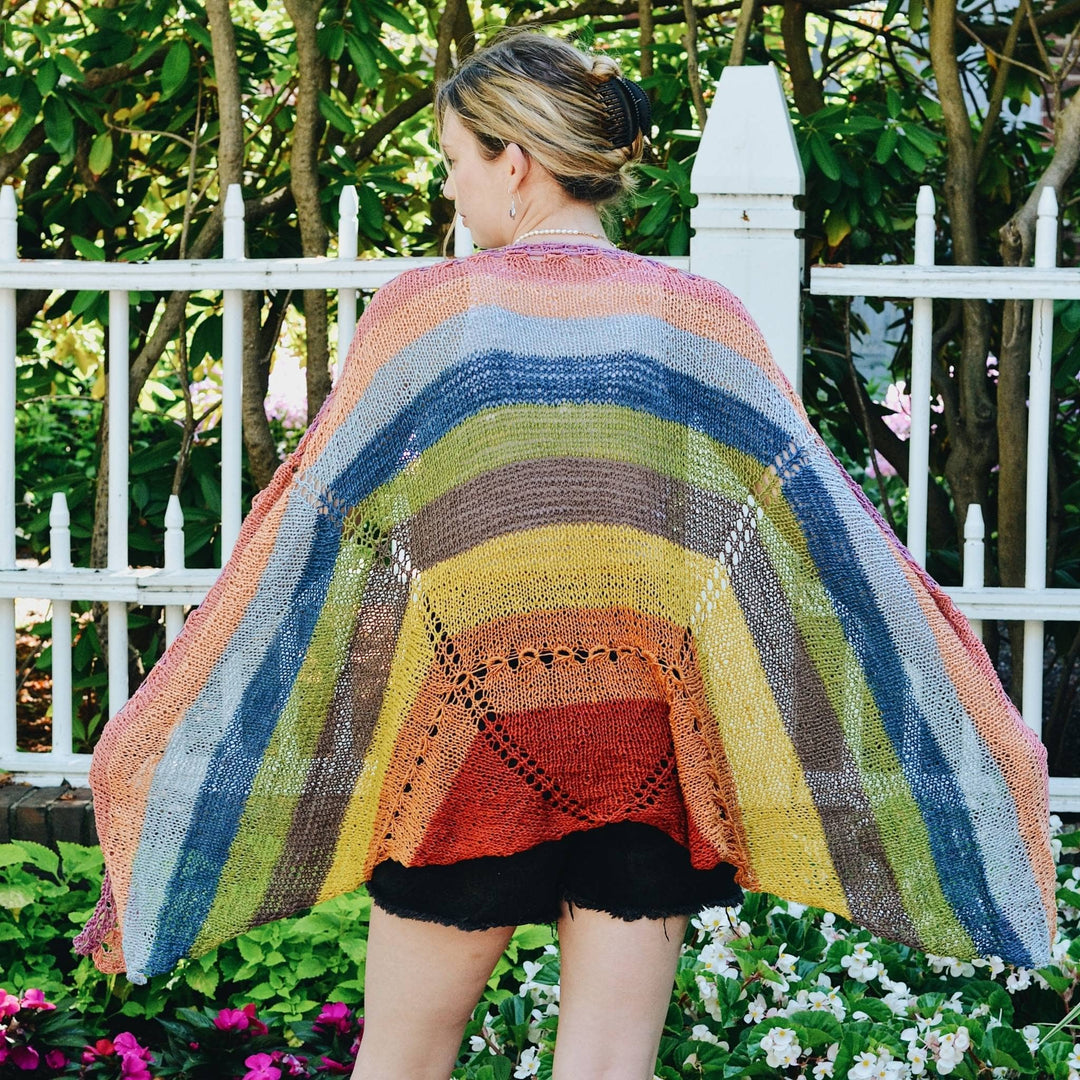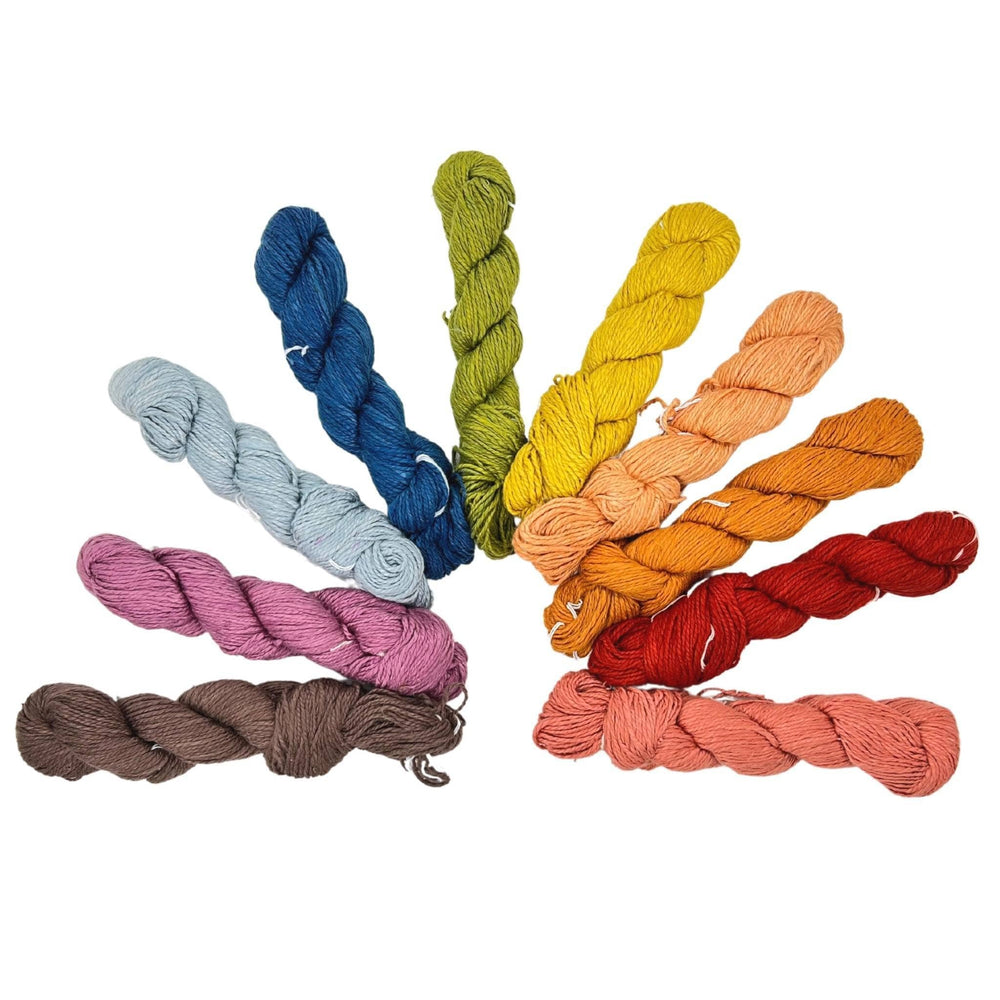Our world has been a little crazy since the beginning of 2020. The COVID-19 epidemic has affected everyone differently, and leaves us all feeling uneasy - but you're not alone in this!
Here at Darn Good Yarn, our experience with the worldwide pandemic has been chaotic. From leaving our warehouse in Upstate New York on March 11th, unsure of when we'd be able to return, to when we started coming back in small groups - the uncertainty has been daunting.
At the beginning, the only DGY team members that were in the building were our warehouse crew. Working in small groups, we are able to keep socially distant while we print, pick, pack, and ship out your orders. This has caused some delays, but we are so thankful that our customers have been understanding our need for safety!
Sam (you may know her as DGY Sam from our Facebook groups) and I were the first small warehouse crew to re-enter the building. It was strange not to see the whole team at the office, and the silence sometimes felt eerie. On top of worrying about the pandemic, we had a ton of new rules and laws we had to follow.
Masks, distancing guidelines, and every surface that was touched had to be sanitized. Sam & I probably spent just as much time disinfecting as we did picking and packing orders!
While everyone of us at DGY headquarters had to make quick adjustments to how we work, our artisans have had their world turned upside down. For our over 600 artisans, COVID-19 and the response to the pandemic have been a true trial of survival.
Let's start from the beginning
The very first case of COVID-19 in India is believed to have been found on January 30th 2020, in the south west Thrissur district. A second case was not reported until February 2nd 2020, in a district north of Thrissur, and soon many cases began to follow. Anyone returning from outside of the country was made to quarantine for 2 weeks, but this seemed to only stall the spread of the virus.
The first confirmed death was announced on March 12th, 2020.
The very next day, India suspended all non-essential travel visas. By the 25th of March, India had initiated a total lock-down until April 14th. This lock-down included:
Suspension of all services (including factories and essential work)
No leaving/entering the country
No non-emergency trips out of the home
All non-essential workers were to stay in their homes.
At first, we were very happy to hear about the lock-down. Sure, we wouldn't be able to receive any yarn or skirt shipments, but the lives of our artisans outweigh ANY monetary value. When we started to hear about the food disparity, police brutality, and race/caste/religion-blaming for the spread of COVID-19, we were worried once again.

Many people were given less than 24 hours notice of the lock-down. This gave citizen 24 hours to return home, go shopping for supplies, and figure out a game plan for the next month.
People working away from their homes were unable to take the train home, as all railways stopped running on March 22nd, 2020. Some people were forced to walk hundreds of miles to their homes, and unfortunately, some people did not survive.
For those lucky enough to be at home, they were swept up in the tide of people trying to purchase supplies needed to survive the lock-down. Because of this rush, many people faced food and supply disparity. Marginalized groups (like some of our artisans) were not able to find enough food, medicine, or other supplies in time. This caused an already stressful situation to become terrifying.
Government Response
The government had relief funds for the poor, but those funds often do not find their way to the people that need them most. The government did provide rations, about 10 kilograms of rice per person every 2 months. Women who were living under the poverty line were given what amounts to $7 USD to help them meet some expenses, and it is helping, but it's just not enough. Effective and fair distribution did not happen, but most people received much needed help from their communities.
Just as worrying, was the blame that was placed on certain minority groups for the cause of the outbreak. Many citizens (and government officials) are trying to use the Muslim minority as scapegoats for the spread of COVID-19. Due to a missionary group being fingered as a super-spreader of the virus, Muslim people across the country have been attacked and denied medical care. Muslims are wrongly being accused of purposely spreading the virus by the media and some members of Parliament. Many people also believed that the lower caste, LGBTQAI+, and immigrant populations helped spread the virus, and claimed that they were trying to 'destroy India from within'.
Many people in India have faced police brutality for not staying in their homes. These people aren't leaving their homes to party on the beach- they're going to sell vegetables to support their families, or to go get food. Police have been harassing and citizens found outside without government-issue passes, and beating them with batons and riot sticks.
With only 24 hours notice, I'm sure you can imagine how difficult it was to attain one of these passes.
I'm sure you can also see how a lack of these passes can contribute to police and mob violence against citizens that are considered to be part of any minority groups.
At the end of March 2020, COVID-19 was continuing to ravage India. People were still dying, so the government extended the lock-down until May 17th. It was then extended again until May 31st. Some districts saw further extensions, depending on their number of confirmed cases, but the end of May 2020 is when India slowly began to re-open.
Your Support During The First Lock-down
During this time, we were keeping in contact with our artisans. Our artisans were very cautious and began taking precautions immediately and most were able to be well prepared. Many feared leaving their homes, not only due to the virus and the violence, but also due to the thought of what contracting the virus could cost them. Some hospitals are charging exorbitant prices, almost $900 USD per day, and requiring all patients to stay for a minimum of 6 days. Most people in our artisan's villages can not afford health insurance, let alone these daily hospital charges.
Our artisans were out of commission for 45 days. Due to your support, these artisans were paid during these 45 days - something that many people in their villages were not as lucky to receive. With this burden off their shoulders, our artisans were able to focus on keeping their families and loved ones safe. Our shipping timelines slowed down, as did our product shipments, but it was worth it for our artisans to survive.
Despite violence and struggles, our artisan communities are tight knit, and they were able to get food and necessary supplies to each other safely. One co-op owners was even able to go out and deliver food care packages to the artisans and other people in their village. They were able to provide 650 provisional food kits that would last about a week for each person.

With the country slowly going into phase two, our artisans were able to return to work and send us out shipments of yarn and skirts. Many of our artisans were able to work from home, which is such a relief! For our artisans that work in co-ops, they have taken to wearing masks, social distancing, and working in segmented shifts--the same thing that we're doing at our warehouse in New York!
During the summer of 2020, our artisans were staying safe. They were once again beginning to work and leave their homes without as much fear. They were able to see their family members for the first time in months! A huge backlog of orders were needed to be sent out (I'm lookin' at you, yarn subscribers!!) and the artisans were excited to get back to work and to see their co-workers.
But COVID-19 wasn't defeated just yet.
Life During The Second Wave
Supply chains were still a little unstable for food, medicine, and other general supplies. Our artisans were finding it difficult to find dyes and other supplies needed to create the yarn. Many artisans were fearful of another lock-down, or waiting to see who will be blamed for the next outbreak.
India has also begun vaccinating the citizens, over 100 million of 400 million citizens have been able to get a vaccine. India is a massive country and some communities have been unable to get basic testing and medical care during the last year, but the people of India have not given up hope. Time reported that over 1 million women have been combating COVID-19 in rural areas, getting patients tested or helping the sick find treatment.
Currently, India has the world's second highest number of confirmed cases. Our artisans tell us that testing is not widespread or available to certain communities, so the numbers are probably much higher. Much like the USA, the number of cases started to increase in the fall and have steadily risen since - mostly due to a more relaxed attitude towards guidelines because of the dip in cases during the warmer months. Due to the spike in cases, factories in large cities have been forced to close- leaving workers stranded in the cities or forcing them to travel by train, bike, or by foot back to their rural towns, possibly bringing COVID-19 along with them.
This exodus from the large cities is exactly what happened during March 2020. People have found themselves without work, food, and support from their government. Many people fear another extended lock-down and are trying to prepare with what meager funds they have.
As with the first lock-down - the wealthy will make do, but what about those neglected by society?
The rise in cases is currently being blamed on workers, who are from rural cities and leave their homes to try and support their families. These workers are often at the bottom of the caste system or are seen as outsiders all together. Their standing in society often makes them disposable to the rich or those at the top of the caste system; and they are again being used as scapegoats.
As of today (May 5th, 2021) India has had over 20.9 million confirmed cases of COVID, and roughly 228,736 deaths.
What You Can Do
Even though things seem bleak, our artisans have hope. We will continue to support our artisans, and we will not give up. Our artisans and their safety is our highest priority. Your continued support, even with the lengthy delays, helps us continue to provide our artisans with fair, dignified, and safe employment. Our co-ops are seeing more and more people coming everyday asking for work, which we are trying to accommodate.
The best way for you to support our artisans is to join our Yarn Of The Month Club:
The yarn in this subscription is handmade by our artisans and is a great way to make a big impact on our artisans and their lives! :)
When times are hard or scary, we have to look for the helpers. The people putting themselves out there and helping others for no personal gain. If you don't see any helpers, that means that you have to become a helper. Small acts for your neighbors (and I mean ALL your neighbors, unhoused, LGBTQIA+, youth, the elderly etc.) can make large differences in your community.
That's what you're doing when you support our artisans- you're helping groups of people that the government would rather forget or blame. People in lower castes, people with disabilities, women, religious minorities, and LGBTQIA+ people of India need help. By working with us, dignity can be provided, safe and consistent money can be made, and generational change can begin to affect our artisans and their communities.
At this time, we are getting PPE (personal protection equipment) such as gowns, masks, and gloves and sending them to our artisans. We are also working on other options, such as sending generators! We're working as hard as we can to help our global community.
We will keep you updated on the safety and lives of our artisans during this time.
XOXO
Kate Curry
 Rewards
Rewards
























